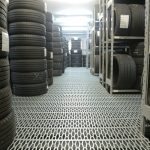Introduction
The quality of the air inside your car can significantly impact your health and comfort while driving. The main contributor to the indoor air quality (IAQ) in your car is its air conditioning system. The potential pollutants from the HVAC system, if not well maintained, can lead to high levels of indoor pollution, causing discomfort and potential health issues. Therefore, it is crucial to understand the necessary procedures to ensure your car air conditioning system does not impair the air quality inside your car. This article will guide you through these procedures, offering insight into testing and controlling the indoor air quality, the importance of ventilation and air filters, and how these can affect your health.
Testing the Indoor Air Quality (IAQ)
Before diving into the procedures for ensuring your car’s air conditioning system does not impair the indoor air quality, it is necessary to understand how to test the IAQ. Testing the air for pollutants is the first step to controlling the quality of the air you breathe in your car.
This might interest you : What are the crucial steps for ensuring the safety of hydrogen fuel cell vehicles?
To test the air quality, specialized testing kits are used. These kits can detect a variety of pollutants such as molds, allergens, volatile organic compounds (VOCs), carbon monoxide, among others. By regularly performing these tests, you can understand the levels of pollutants in your car and take the necessary actions to reduce exposure to these pollutants.
It is also vital to note that a musty smell in your car may be a sign of mold growth, indicating a need for air quality testing. Other signs that may necessitate a test include frequent respiratory issues, headaches, fatigue, or unusual and persistent odors.
Have you seen this : How can you optimize headlight alignment for maximum road illumination without dazzling other drivers?
Importance of Ventilation
Ventilation plays a crucial role in maintaining the air quality inside your car. An effective ventilation system helps in reducing the pollutant levels inside your car by replacing the stale, polluted indoor air with fresh outdoor air. Therefore, ensuring your car’s ventilation system is working optimally is critical.
Regular maintenance of your car’s ventilation system is necessary. It would help if you made sure to clean the vents regularly to prevent the accumulation of dust and other pollutants. Also, it is advisable to keep the car windows slightly open whenever possible to allow the fresh air to circulate inside the car. Additionally, when parked in direct sunlight, it is advisable to slightly open the windows, enabling the hot air to escape and reducing the formation of volatile organic compounds (VOCs) from the car’s interior materials.
Understanding the Role of Air Filters
Air filters are an integral part of your car’s HVAC system. They trap dust, pollen, and other airborne particles, preventing them from entering the vehicle’s interior and affecting the air quality. Therefore, ensuring the filters are in good shape is essential for maintaining good air quality inside your car.
For optimal functioning, air filters must be regularly replaced according to the manufacturer’s instructions. A clogged or aging filter can lead to a decrease in the HVAC system’s efficiency and an increase in the levels of indoor pollution. A clean filter not only ensures better air quality but also prolongs the lifespan of the HVAC system.
Controlling the Indoor Air Quality
Controlling the indoor air quality is a vital step in ensuring the air conditioning system does not impair the air quality inside your car. The first step in controlling the IAQ is by reducing the source of pollutants. This can be done by regular cleaning of the car interior, avoiding smoking inside the car, and ensuring that any air fresheners or other products used inside the car are free from harmful substances.
Another vital aspect of controlling IAQ is the proper use of the HVAC system. The air conditioning system should be set to the external air mode rather than the recirculation mode. This setting ensures that fresh air is constantly circulated inside the car, reducing the buildup of pollutants.
Lastly, regular maintenance of the HVAC system is necessary to ensure it functions optimally. This includes regular cleaning and servicing of the system, checking for any leaks, and ensuring the seals are in good condition.
Maintaining good indoor air quality inside your car is not a one-time event but a continuous process. By following these procedures, you can ensure that your car’s air conditioning system does not impair the air quality inside your car, leading to a healthier and more comfortable driving experience.
Adopting Proper Maintenance Practices
One of the effective ways to ensure that the air conditioning system does not degrade your car’s indoor air is by adopting correct and regular maintenance practices. The HVAC system, air filters, and ventilation system all require routine maintenance to function optimally and maintain clean air in your car.
The HVAC system should be regularly inspected for any leaks or damage. Any malfunctions in the system should be promptly repaired. This will not only enhance the system’s efficiency but also ensure it does not become a source of air pollutants. Remember, a poorly maintained HVAC system can lead to the growth and spread of mold, bacteria, and other contaminants.
Air filters play a significant role in improving the indoor air by trapping dust, pollen, and other airborne particles. Over time, they can become clogged and less effective at filtering these pollutants. Therefore, they should be replaced regularly, typically every 12,000 to 15,000 miles, or according to the manufacturer’s instructions.
The ventilation system also needs regular cleaning to prevent the accumulation of dust and other pollutants that can adversely impact the indoor air quality. Ensure that the vents are kept clean and free of any blockages. During maintenance, the ventilation ducts should be inspected for any signs of mold or other pollutants.
Lastly, the interior of the car should be kept clean. Regular cleaning helps to reduce the source of pollutants, such as dust and volatile organic compounds (VOCs), which can significantly improve the air quality inside your car.
Conclusion
The air conditioning system can significantly impact the air quality inside your car. If not properly maintained, it can become a source of various pollutants that can affect your health and comfort. Therefore, it is crucial to follow the necessary procedures to ensure your car’s air conditioning system does not impair the air quality.
Testing the indoor air quality, ensuring proper ventilation, understanding the role of air filters, and adopting proper maintenance practices are all essential parts of these procedures. It’s not just about maintaining your car’s air conditioning system; it’s about safeguarding your health.
By understanding the sources of indoor air pollution and how to control them, you can maintain the quality of the air inside your car, promoting better respiratory health and a more comfortable driving experience. Regular maintenance and attention to your car’s air conditioning, ventilation, and filtration systems can make a significant difference in the freshness, cleanliness, and safety of your car’s indoor air.
Remember, maintaining good indoor air quality in your car is not a one-time event but a continuous process. Stay vigilant, stay informed, and most importantly, breathe easy knowing you’re doing everything you can to safeguard your health and that of your passengers.











